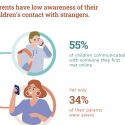Today is Safer Internet Day. Australia’s eSafety Commisioner’s Office have also just released some new research about parents awareness of their children experiences online, with some alarming findings.
My top tip to helping your child have a happy and safer experience online is focusing 80% of your energy on fostering a trusting and open relationship with your child. Way over and above any parental controls, or close monitoring of your children. This research shows some of the “Gaps” overall in many parents way to ensuring this open and trusting relationship can be fostered.
The Key Findings from this Research titled Mind the Gap: Parental awareness of children’s exposure to risks online are –
Key findings
- Most parents are unaware of how often their teenagers encounter harmful content online, including content about drug taking, suicide and violent sexual material.
- Young people engage in a wide range of supportive and protective online activities, such as accessing health information and services, and seeking emotional support from friends.
- Young people are often treated in hurtful ways online and may feel their parents don’t acknowledge the severity of these experiences.
- Children and teenagers often participate in risky online behaviours, with most teens exposed to harmful and sexual content.
- While children with restrictive parents are less likely to be exposed to harmful content, they are also much less likely to engage in supportive and protective online activities.
Some of the statistics:
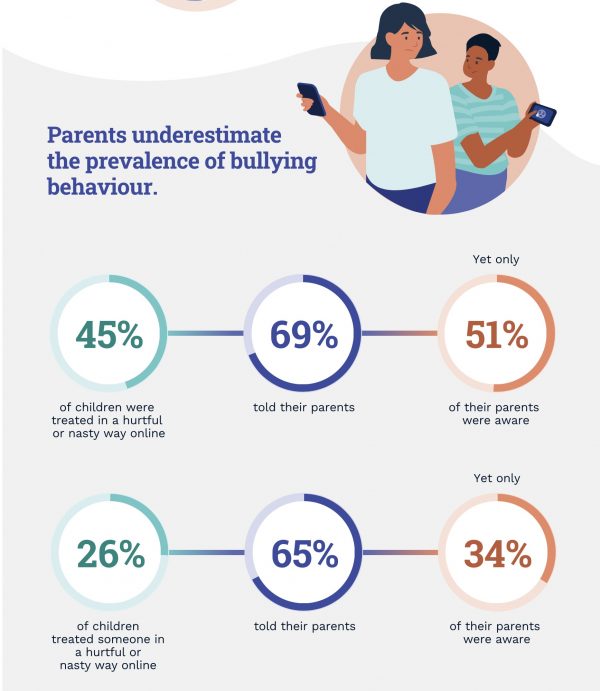
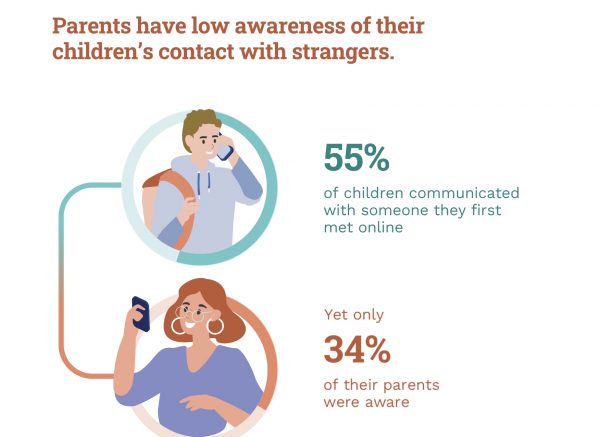
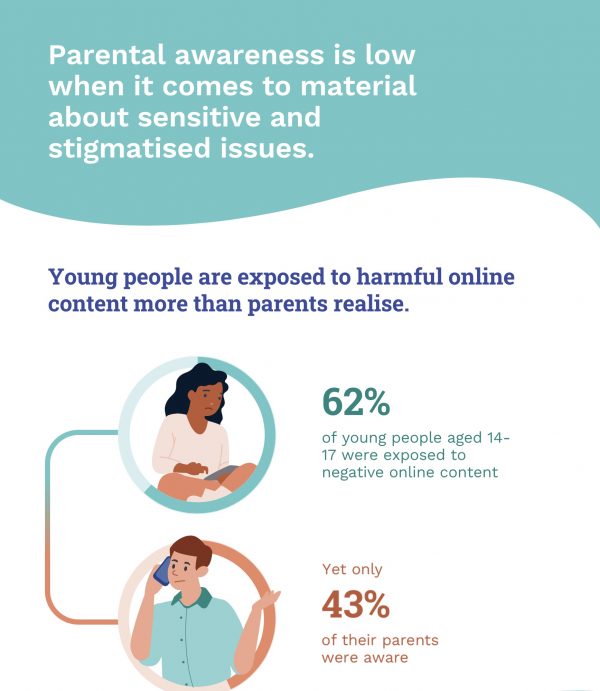
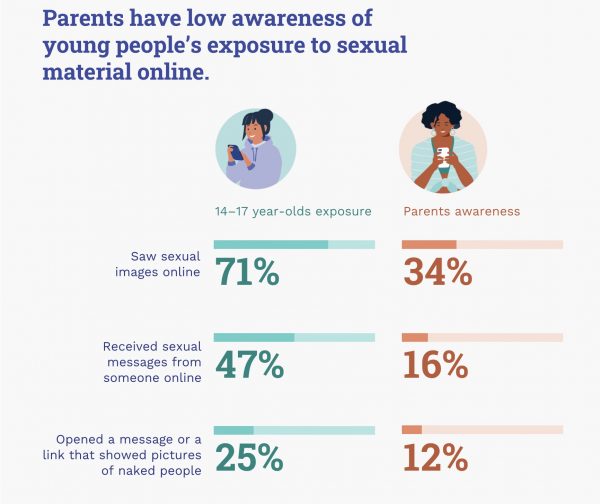
You can read this research in more detail here: Mind The Gap PDF
The findings in this research are mostly what I’d expect with the anecdotal responses to my “hands up” type of questions that I posed over the last few years with students. I was pleasantly surprised to find however that as indicated by these surveys that there seems to have been an increase in the amount of children that are now going to an adult they trust for help. But what I wasn’t prepared for were the amount of parents, who didn’t remember or take note of the times their children had done that.
From the research
“Just under half of surveyed children (45%) reported that they have been treated in a hurtful or nasty way online, and of this proportion, seven in ten (69%) told their parents about this experience. This response indicates that children see their parents as a key source of support, and that most are likely to go to their parents when they have a negative online experience. However, only half (51%) of parents whose children had been treated in a hurtful way online claimed to be aware of what their child had experienced and shared with them.”
So what do parents need to do overall to improve this?
- Build a trusting open relationship with your child
- Find the good in the online world with your child
- Build a safe space for children to come to you to share
- Note: Too restrictive and intrusive digital control doesn’t build trust and might restrict your child too much
- Understand the online world and the offline world are not seperate, take online issues as seriously as offline
- Your child might know how to “block” and filter their online experience, but emotionally they still need your support.
- Have conversations about harmful content online and what to do.
- Set filters to help protect your child from harmful content and experience, but don’t rely on them.
If you need more help with a more tailored approach I have more information Here: Digital Families Parent Coaching

